

— Products —
 Consumer hotline +8618073152920
Consumer hotline +8618073152920 WhatsApp:+8615367865107
Address:Room 102, District D, Houhu Industrial Park, Yuelu District, Changsha City, Hunan Province, China
All products
Soil salinity sensors are devices designed to measure the salt content in soil, which is an important parameter for assessing soil health and determining the suitability of soil for agricultural purposes. High soil salinity can negatively affect plant growth and reduce crop yields, making it a significant concern for farmers and environmental scientists.
Tel/WhatsApp:+8615367865107
Email:Arvin@niubol.com +Nearly 100 partner company in more than 68 countries. We are committed to providing high-quality, practical products to meet your needs and help you solve problems.Product Details
Soil salinity sensors are devices designed to measure the salt content in soil, which is an important parameter for assessing soil health and determining the suitability of soil for agricultural purposes. High soil salinity can negatively affect plant growth and reduce crop yields, making it a significant concern for farmers and environmental scientists.
Soil salinity is a common problem in many parts of the world, particularly in arid and semi-arid regions. These sensors play a crucial role in monitoring and managing soil salinity, helping to implement appropriate agricultural practices and irrigation strategies to mitigate its negative impacts.
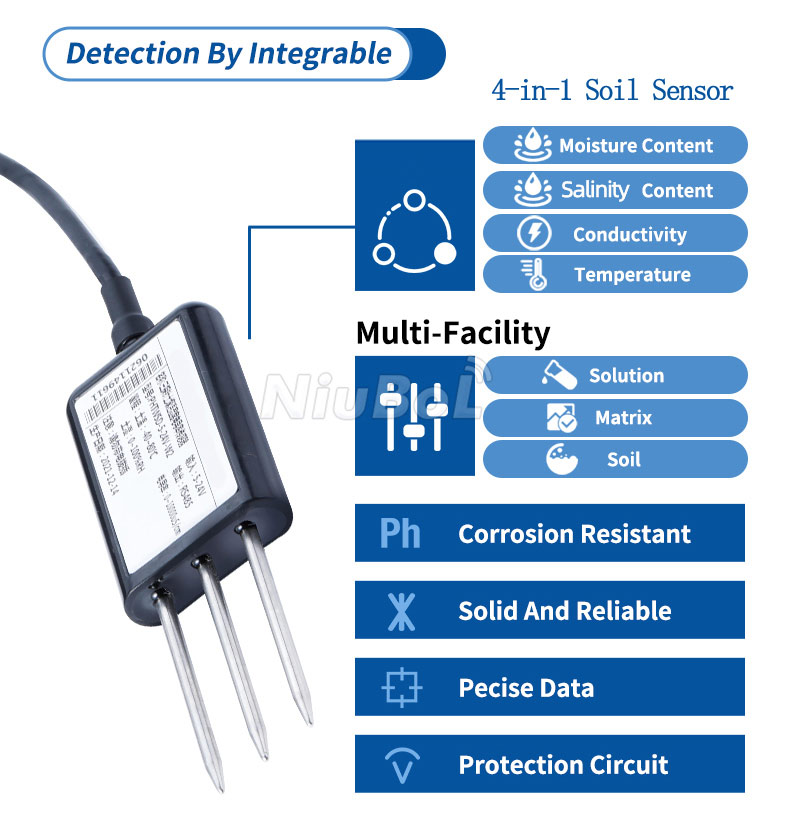
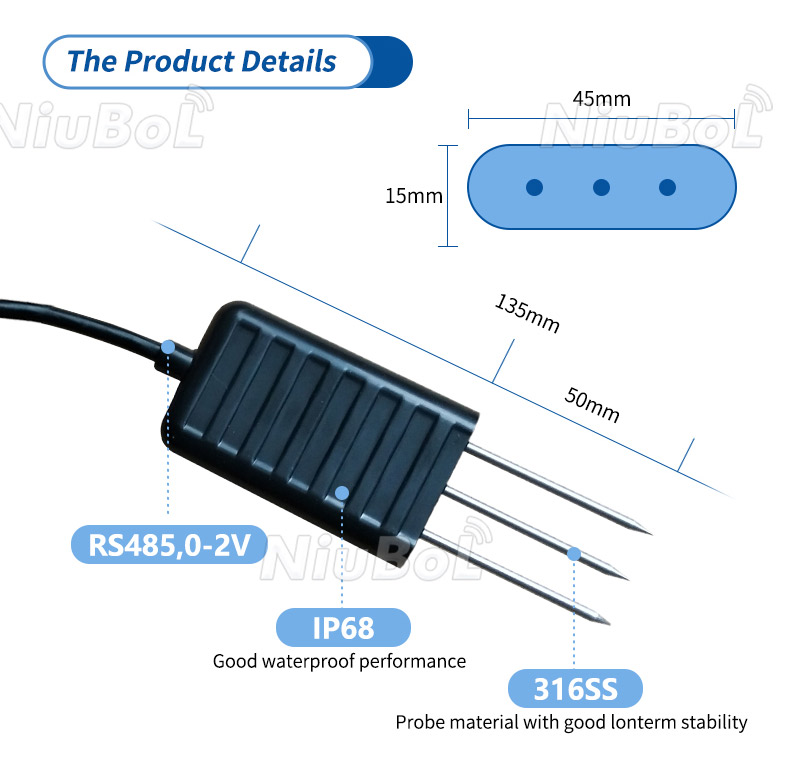
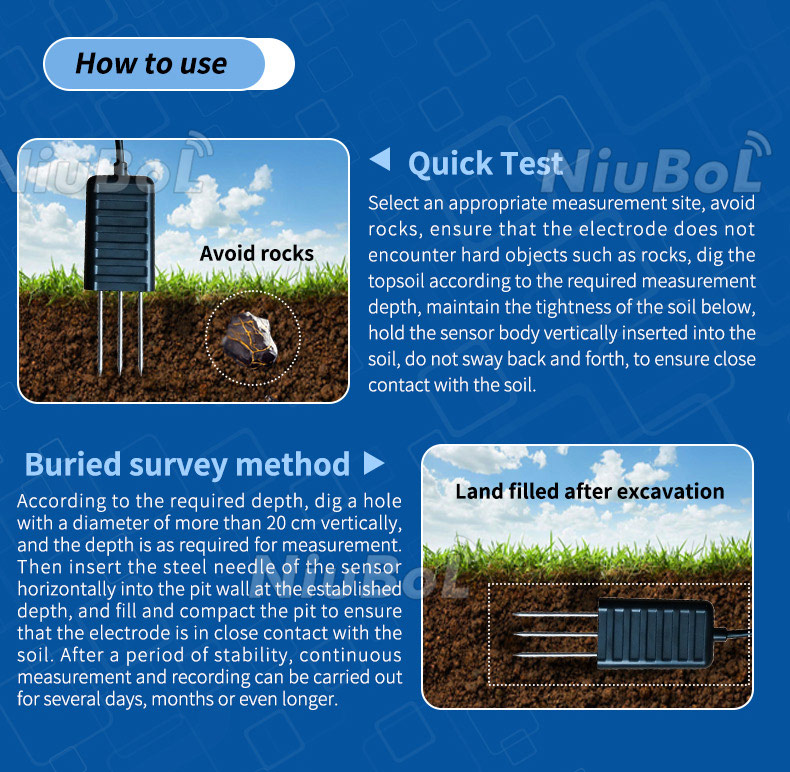
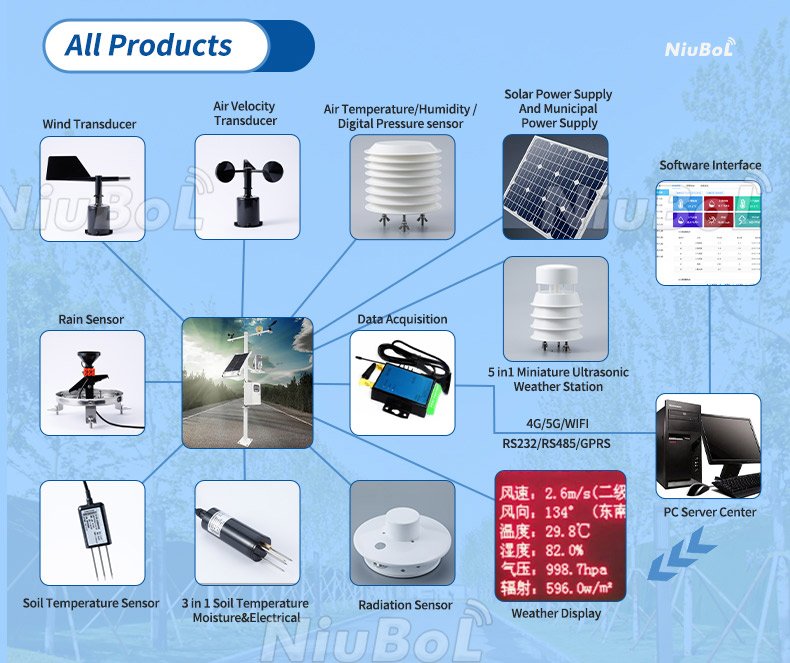
Soil salinity sensors typically use the principle of conductivity measurement to determine the salt content of the soil. The principle of operation is as follows:
The sensor passes an electric current through the soil and estimates the soil salinity level by measuring the conductivity (the concentration of electrolytes in the soil). The higher the salinity level, the higher the conductivity of the soil, so the sensor is able to infer the salt content of the soil from the measured conductivity value. Some advanced soil salinity sensors may also take into account the effect of soil temperature on conductivity to improve the accuracy of the measurement.
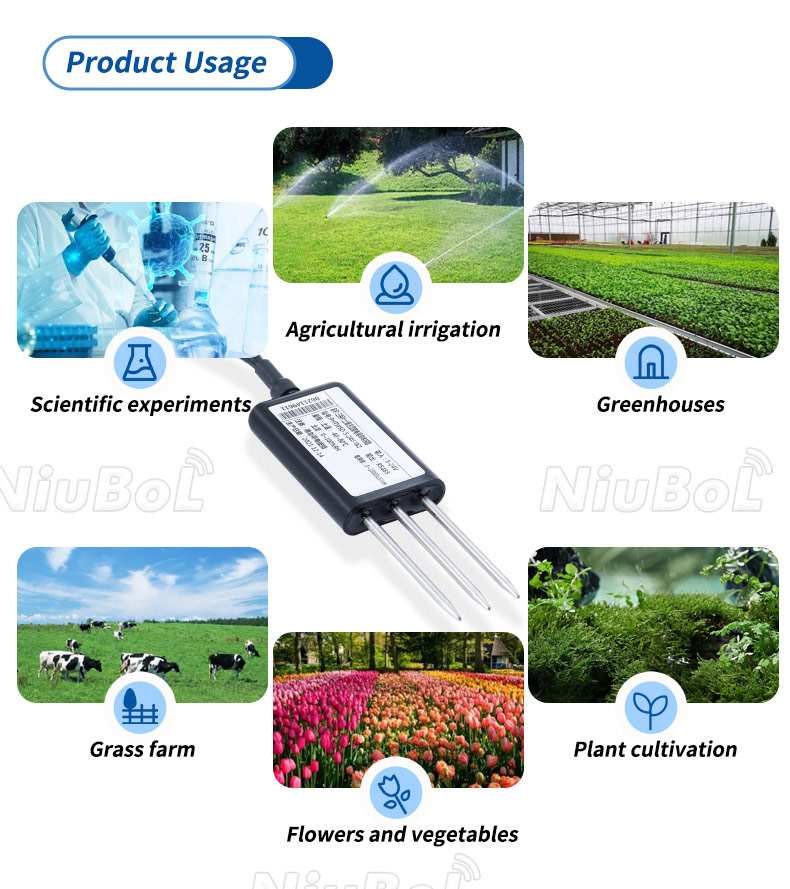
Soil salinity sensors have important applications in many fields, including but not limited to:
1. Agricultural Management: Farmers can use soil salinity sensors to assess the salinity levels of their fields and make informed decisions about crop selection, irrigation practices, and soil amendment applications. This helps in optimizing water use and reducing the negative impact of high salinity on yields.
2. Environmental Monitoring: Researchers and environmental scientists use these sensors to monitor changes in soil salinity over time, which can be indicative of broader environmental health and water quality issues.
3. Land Use Planning: In urban planning and land-use management, soil salinity sensors can provide valuable data for deciding on the type of land use that is most suitable for a particular area, considering soil health and salinity levels.
4. Horticulture: Monitoring soil salinity in greenhouses or gardens to ensure plants receive the proper nutrients and water.
5. Soil Science: Used to study the distribution and effects of salts in soils to help improve soil quality and protect ecosystems.
By accurately measuring soil salinity in a timely manner, soil salinity sensors can help users optimize soil management practices, prevent soil salinity problems, improve crop yields and quality, and protect environmental resources.
Overall, soil salinity sensors are essential tools for sustainable soil management and agricultural practices, helping to ensure that soil resources are used efficiently and that the environment is protected from the adverse effects of high salinity.
Sensors & Weather Stations Catalog
Agriculture Sensors and Weather Stations Catalog-NiuBoL.pdf
Weather Stations Catalog-NiuBoL.pdf
Related recommendations
 Multi-Depth Soil Sensor RS485
Multi-Depth Soil Sensor RS485 TDR Soil Moisture Sensor
TDR Soil Moisture Sensor Pyranometer Solar Radiation Sensors
Pyranometer Solar Radiation Sensors Soil ph sensor
Soil ph sensor Tipping Bucket Rain Gauge
Tipping Bucket Rain Gauge Air Temperature and Humidity Sensor
Air Temperature and Humidity Sensor
Screenshot, WhatsApp to identify the QR code
WhatsApp number:+8615367865107
(Click on WhatsApp to copy and add friends)